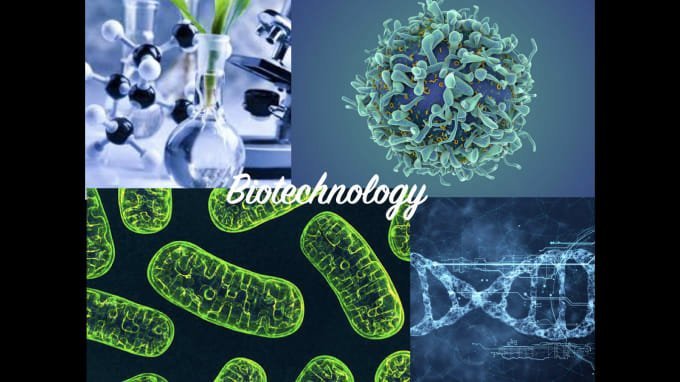Biotechnology is a term that might sound complex, but it touches our everyday lives in more ways than we realize. From the medicines we take to the food we eat, biotechnology plays a crucial role in improving the world around us. In simple terms, biotech is the use of living organisms or biological systems to make products that help humans. This field is constantly growing and changing, making it one of the most exciting areas of science today.
In this blog, we will explore what biotechnology is, its different types, how it affects various fields such as medicine, agriculture, and the environment, and why it’s so important for the future.
What is Biotechnology?
Biotechnology is the application of science and technology to living organisms, like plants, animals, and microorganisms. It involves using biological processes to create useful products or solve problems. While biotechnology has been around for thousands of years (think of the fermentation process used in making bread and cheese), modern biotech is more advanced and has given rise to groundbreaking innovations in medicine, agriculture, and environmental science.
Types of Biotechnology
There are several branches of biotechnology, each with a specific focus. Let’s take a closer look at the most common types:
- Medical Biotechnology
This branch of biotechnology focuses on improving human health. It includes developing new drugs, gene therapy, and the creation of vaccines. Medical biotech has led to the development of life-saving treatments for diseases like cancer, diabetes, and heart disease. It also allows scientists to create personalized medicine, where treatments are tailored specifically to an individual’s genetic makeup. - Agricultural Biotechnology
This field is focused on improving crops and livestock. Scientists use biotechnology to create genetically modified organisms (GMOs) that are resistant to pests, diseases, and environmental conditions. This helps farmers grow more food with fewer resources, ensuring a stable food supply even in challenging climates. Agricultural biotech also includes techniques like cloning, which can help produce healthier and more productive animals. - Environmental Biotechnology
Environmental biotechnology uses biological processes to clean up polluted environments. For example, certain bacteria can be used to break down oil spills or treat wastewater. This type of biotech helps reduce the impact of human activity on the environment and promotes sustainable living. - Industrial Biotechnology
Also known as white biotechnology, this area focuses on using biological systems to create industrial products, such as biofuels, chemicals, and materials. Industrial biotech aims to reduce the use of fossil fuels and create cleaner, more sustainable manufacturing processes.
How Biotechnology is Changing Medicine
One of the most exciting areas of biotechnology is its impact on medicine. Here are some of the ways biotech is transforming healthcare:
Development of New Drugs and Therapies
Biotechnology has revolutionized the way we develop drugs. Instead of relying on chemicals, many modern medicines are made using biological processes. For example, insulin, which is used to treat diabetes, is produced using genetically engineered bacteria. Biotechnology has also led to the development of monoclonal antibodies, which are used to treat diseases like cancer by targeting specific cells in the body.
Gene Therapy
Gene therapy is a cutting-edge technology that involves altering the genes inside a person’s cells to treat or prevent disease. In some cases, gene therapy can cure genetic disorders by replacing faulty genes with healthy ones. While still in its early stages, gene therapy has the potential to change the way we treat diseases like cystic fibrosis, muscular dystrophy, and even some types of cancer.
Personalized Medicine
One of the most promising aspects of biotechnology is personalized medicine. By analyzing a person’s genetic information, doctors can create customized treatment plans that are more effective and have fewer side effects. This is a huge step forward from the one-size-fits-all approach that is common in healthcare today. Personalized medicine is particularly useful in cancer treatment, where different types of cancer respond to different therapies.
For a deeper dive into the world of gene therapy and its impact on human health, check out this high-authority resource on the topic from the National Institutes of Health.
Biotechnology in Agriculture: Feeding the World
As the global population continues to grow, the demand for food is increasing. Biotechnology plays a vital role in ensuring we can produce enough food to meet this demand while also protecting the environment.
Genetically Modified Crops
One of the most well-known applications of agricultural biotechnology is the creation of genetically modified organisms (GMOs). GMOs are plants that have been altered to possess certain traits, such as resistance to pests, tolerance to herbicides, or the ability to withstand harsh environmental conditions like drought. This allows farmers to grow more food with fewer inputs, such as water and pesticides. Examples of GMO crops include corn, soybeans, and cotton.
Reducing Environmental Impact
Agricultural biotechnology also helps reduce the environmental impact of farming. For example, genetically modified crops can be designed to use less water, which is especially important in areas facing water shortages. Additionally, by reducing the need for chemical pesticides, biotech crops help protect the soil and water from pollution.
Improved Livestock
Biotechnology is not just limited to plants. It is also used to improve livestock. Through techniques like cloning and genetic engineering, scientists can produce animals that are more resistant to diseases and produce more milk or meat. This not only helps farmers increase their productivity but also reduces the need for antibiotics, which can lead to drug-resistant bacteria.
Environmental Biotechnology: Cleaning and Protecting the Planet
Environmental biotechnology focuses on using living organisms to solve environmental problems. With concerns about climate change and pollution growing, this branch of biotech is becoming more important than ever.
Bioremediation
One of the key areas of environmental biotechnology is bioremediation, which involves using microorganisms to clean up contaminated environments. For example, bacteria that can break down oil are used to clean up oil spills, while other microbes can be used to treat wastewater. This helps reduce the impact of pollution and protect ecosystems from harm.
Biofuels
Another important application of environmental biotech is the production of biofuels. Biofuels are made from renewable biological resources, such as plant materials or algae. Unlike fossil fuels, biofuels produce fewer greenhouse gases and are more sustainable in the long term. Scientists are constantly working to improve the efficiency of biofuel production, making it a viable alternative to traditional energy sources.
Industrial Biotechnology: Building a Greener Future
Industrial biotechnology focuses on using biological processes to create products in a more sustainable way. This includes everything from producing biofuels to manufacturing biodegradable plastics.
Cleaner Manufacturing
One of the key goals of industrial biotechnology is to reduce the environmental impact of manufacturing. Traditional industrial processes often rely on toxic chemicals and generate a lot of waste. In contrast, industrial biotechnology uses enzymes and microorganisms to carry out chemical reactions in a cleaner, more efficient way. This helps reduce pollution and conserve resources.
Renewable Energy
As we look for alternatives to fossil fuels, industrial biotechnology offers a promising solution in the form of renewable energy. Scientists are developing ways to produce biofuels from crops, algae, and even waste materials. These biofuels can be used to power cars, trucks, and even airplanes, offering a more sustainable alternative to traditional fuels.
For more information on industrial biotechnology and its impact on the environment, visit this high-authority link from the U.S. Environmental Protection Agency.
Conclusion
Biotechnology is a powerful tool that is transforming many aspects of our world, from medicine and agriculture to environmental protection and industrial manufacturing. It offers solutions to some of the biggest challenges we face today, such as disease, food security, and climate change.
As the field continues to grow and evolve, biotech will play an increasingly important role in shaping the future. Whether it’s through new medical treatments, more sustainable farming practices, or cleaner manufacturing processes, biotech has the potential to improve the quality of life for people all around the world.
If you’re interested in learning more about biotechnology and its applications, check out the links provided throughout this post for additional resources and information. The future of biotechnology is bright, and its possibilities are nearly limitless!

